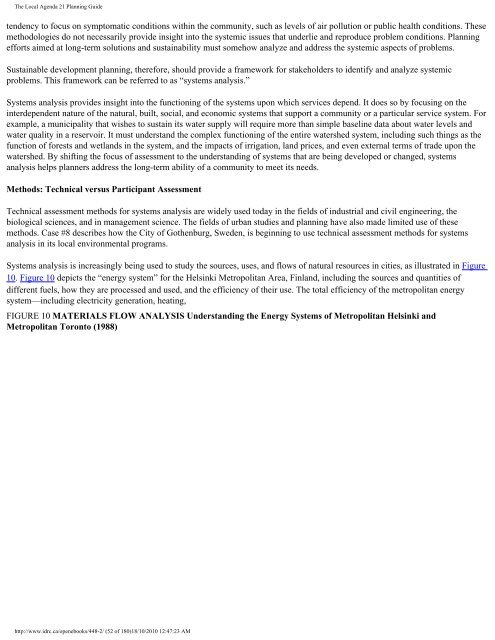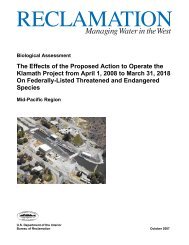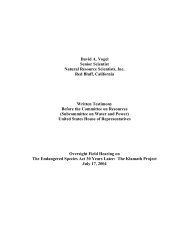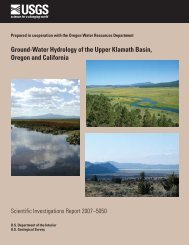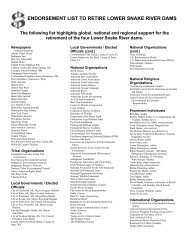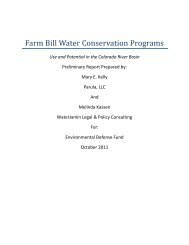The Local Agenda 21 Planning Guide - Democrats Against UN ...
The Local Agenda 21 Planning Guide - Democrats Against UN ...
The Local Agenda 21 Planning Guide - Democrats Against UN ...
You also want an ePaper? Increase the reach of your titles
YUMPU automatically turns print PDFs into web optimized ePapers that Google loves.
<strong>The</strong> <strong>Local</strong> <strong>Agenda</strong> <strong>21</strong> <strong>Planning</strong> <strong>Guide</strong><br />
tendency to focus on symptomatic conditions within the community, such as levels of air pollution or public health conditions. <strong>The</strong>se<br />
methodologies do not necessarily provide insight into the systemic issues that underlie and reproduce problem conditions. <strong>Planning</strong><br />
efforts aimed at long-term solutions and sustainability must somehow analyze and address the systemic aspects of problems.<br />
Sustainable development planning, therefore, should provide a framework for stakeholders to identify and analyze systemic<br />
problems. This framework can be referred to as “systems analysis.”<br />
Systems analysis provides insight into the functioning of the systems upon which services depend. It does so by focusing on the<br />
interdependent nature of the natural, built, social, and economic systems that support a community or a particular service system. For<br />
example, a municipality that wishes to sustain its water supply will require more than simple baseline data about water levels and<br />
water quality in a reservoir. It must understand the complex functioning of the entire watershed system, including such things as the<br />
function of forests and wetlands in the system, and the impacts of irrigation, land prices, and even external terms of trade upon the<br />
watershed. By shifting the focus of assessment to the understanding of systems that are being developed or changed, systems<br />
analysis helps planners address the long-term ability of a community to meet its needs.<br />
Methods: Technical versus Participant Assessment<br />
Technical assessment methods for systems analysis are widely used today in the fields of industrial and civil engineering, the<br />
biological sciences, and in management science. <strong>The</strong> fields of urban studies and planning have also made limited use of these<br />
methods. Case #8 describes how the City of Gothenburg, Sweden, is beginning to use technical assessment methods for systems<br />
analysis in its local environmental programs.<br />
Systems analysis is increasingly being used to study the sources, uses, and flows of natural resources in cities, as illustrated in Figure<br />
10. Figure 10 depicts the “energy system” for the Helsinki Metropolitan Area, Finland, including the sources and quantities of<br />
different fuels, how they are processed and used, and the efficiency of their use. <strong>The</strong> total efficiency of the metropolitan energy<br />
system—including electricity generation, heating,<br />
FIGURE 10 MATERIALS FLOW ANALYSIS Understanding the Energy Systems of Metropolitan Helsinki and<br />
Metropolitan Toronto (1988)<br />
http://www.idrc.ca/openebooks/448-2/ (52 of 180)18/10/2010 12:47:23 AM


